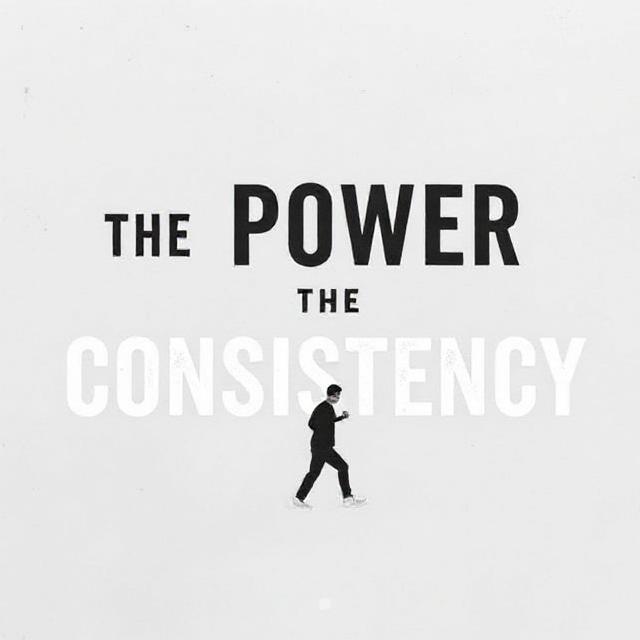
In life, success isn’t always about talent, intelligence, or luck—it’s often about mindset. Two people can face the same challenge, but their outcomes turn out completely different just because of how they think. One sees failure as proof they’re not good enough. The other sees failure as feedback and tries again smarter. That difference is called mindset, and learning how to build a growth mindset can change how you approach everything in life—work, learning, health, relationships, and personal goals.
A growth mindset is the belief that skills and abilities can be developed through effort, learning, and persistence. It’s the opposite of a fixed mindset, where people believe abilities are static—you either “have it” or you don’t. The truth is, no one is born successful. They become successful because they choose progress over perfection.
This article will guide you step by step on how to develop a growth mindset and apply it to your daily life so you can move closer to success—consistently and confidently.
Understand the Difference: Fixed Mindset vs Growth Mindset
Before developing a growth mindset, it’s important to understand the difference:
| Situation | Fixed Mindset Response | Growth Mindset Response |
|---|---|---|
| You fail at something | “I’m not good at this. I should stop.” | “What can I learn to do better next time?” |
| Someone is better than you | “They’re naturally talented. I can’t compete.” | “They worked hard to get there. I can too.” |
| You face a challenge | “This is too hard. I’ll avoid it.” | “This may take time, but I can figure it out.” |
| You make a mistake | “I’m embarrassed. I shouldn’t try again.” | “Good, now I know what to improve next time.” |
The goal is to start catching your thoughts. When you notice a fixed mindset thought, pause and intentionally replace it with a growth mindset response.
Start Replacing Negative Self-Talk with Growth Language
Your words shape your beliefs. People with a fixed mindset often speak in final statements like:
- “I can’t do this.”
- “I’m just bad at staying consistent.”
- “I’m not a disciplined person.”
To shift into a growth mindset, simply add possibility to your language. Here’s how to reframe:
- “I can’t do this… yet.”
- “I find consistency hard, but I can build better habits.”
- “I’m learning to become more disciplined with small steps.”
That small shift from final statements to progress statements makes your brain more willing to take action rather than shut down.
Accept That Failure Is Part of Progress, Not Proof of Inability
Most people don’t actually fear failure—they fear being seen as a failure.
But if you study successful people—athletes, business owners, writers, or creators—you’ll notice one pattern: they fail more than average people, but they don’t take it personally. Instead, they extract lessons.
When something goes wrong, ask yourself:
- “What is this situation trying to teach me?”
- “Where did I go off track and how can I adjust?”
- “What can I do differently on my next attempt?”
Successful people don’t avoid failure—they use it as feedback. That mindset shift alone separates progress-seekers from perfection-seekers.
Focus on Effort and Consistency Over Instant Results
One reason people quit is because they want quick results. They try something for a week and expect transformation. Growth mindset focuses more on process over outcome.
Ask yourself:
- Am I working daily toward this goal, even in small ways?
- Am I rewarding my effort, not just the results?
- Am I staying consistent long enough to see progress?
Think of growth like planting a seed. You don’t dig it up every day to check if it’s growing. You water it, give it light, and let time do its work. The same applies to personal success.
Surround Yourself with Growth-Minded People
Be careful who you listen to. Some people unintentionally reinforce fixed mindset thinking:
- “Why are you trying so hard? Just be normal.”
- “You always quit anyway. Why bother starting?”
- “Some people are just born like that. We can’t all be successful.”
These comments reflect their limitations—not yours. Instead, surround yourself with those who speak possibility-focused language:
- “You’re improving.”
- “Keep going, you’re getting there.”
- “Let’s figure out how to make it work.”
You don’t always need highly successful people around you—you just need people who believe in change, growth, and effort.
Learn to Love the Process, Not Just the Achievement
People with a fixed mindset only take action when success feels guaranteed. If they can’t be the best, they don’t try at all. Growth mindset individuals, on the other hand, enjoy the process because they see it as training—not a test.
Example:
- Fixed Mindset: “If I can’t get fit in one month, what’s the point?”
- Growth Mindset: “Let me focus on building small habits daily. The body I want will come naturally.”
To develop a growth mindset, ask yourself daily:
- “What small action can I take today that aligns with my growth?”
- “Am I showing up even when I don’t feel motivated?”
Track Your Progress and Celebrate Improvements
Growth mindset is easier to maintain when you can see yourself improving. So track your journey:
- Journal small wins.
- Celebrate when you stay consistent.
- Acknowledge that you’re making progress, even if it’s slow.
Remember: Success is not built on motivation—it is built on repeated effort, even on days when you don’t feel like it.
Turn Comparison into Inspiration, Not Self-Doubt
When you see someone ahead of you, your mindset decides your reaction:
- Fixed mindset says: “They’re better than me. I’ll never reach that level.”
- Growth mindset says: “If they can do it, that means it’s possible. What can I learn from their journey?”
Use others as proof that your goals are achievable, not as evidence that you’re behind.
Final Thought: Choose Progress Over Perfection
A growth mindset does not mean you never feel doubt. It means you keep moving even when doubt appears.
Every time you catch yourself thinking “I can’t,” replace it with “I’m learning how.”
Every time you feel behind, remind yourself you only need to be 1% better than yesterday.
A growth mindset doesn’t guarantee success immediately—but it guarantees that you will never stay stuck in the same place.
Read more About
Best Daily Habits for Self Improvement You should know



